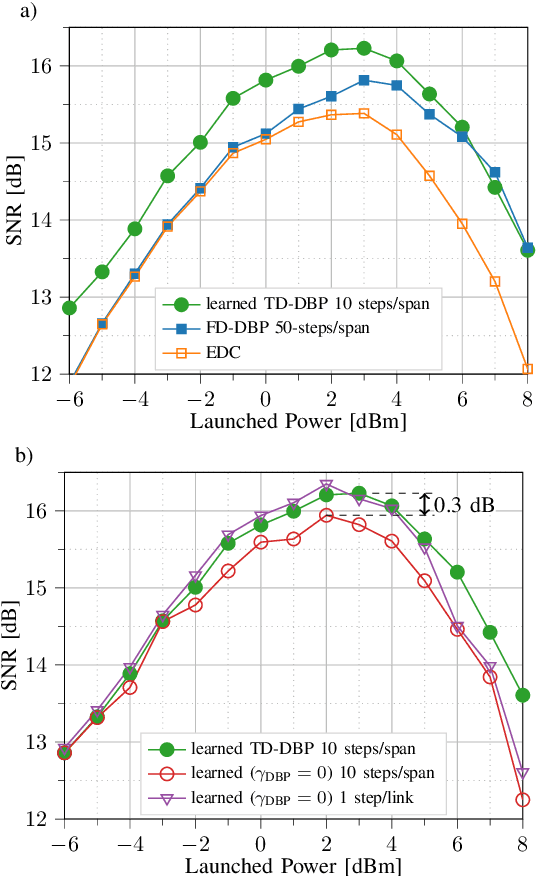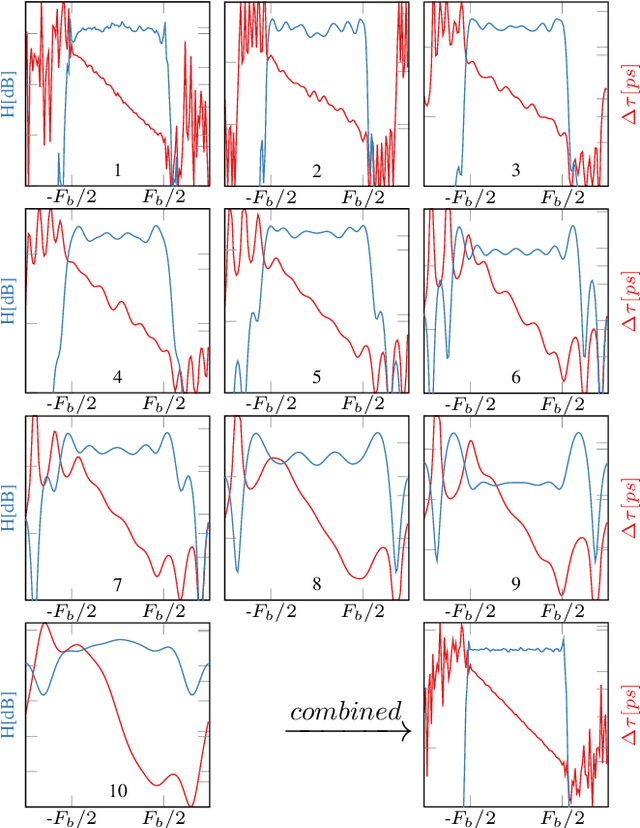Daniel Semrau
Optimising O-to-U Band Transmission Using Fast ISRS Gaussian Noise Numerical Integral Model
Jan 31, 2024



Abstract:We model the transmission of ultrawideband (UWB) signals, including wavelength-dependent fibre parameters: dispersion, nonlinear coefficient and effective fibre core area. To that end, the inter-channel stimulated Raman scattering Gaussian noise (ISRS GN) integral model is extended to include these parameters. The integrals involved in this frequency-domain model are numerically solved in hyperbolic coordinates using a Riemann sum. The model implementation is designed to work on parallel graphics processing units (GPUs) and is optimised for fast computational time. The model is valid for Gaussian-distributed signals and is compared with the split-step Fourier method (SSFM), for transmission over standard single-mode fibre (SSMF) in the O-band (wavelengths around the zero-dispersion wavelength), showing reasonable agreement. Further, we demonstrated SNR evaluation over an 80 km SSFM single-span transmission using 589$\times$96 GBaud channels, corresponding to almost 59 THz optical bandwidth, fully populating the O, E, S, C, L and U bands (1260$-$1675 nm). The SNR evaluation is completed in just 3.6 seconds using four Nvidia V100 16GB PCIe GPUs. Finally, we used this model to find the optimum launch power profile for this system achieving 747 Tbps of potential throughput over 80 km fibre and demonstrating its suitability for UWB optimisation routines.
Experimental Demonstration of Learned Time-Domain Digital Back-Propagation
Dec 23, 2019



Abstract:We present the first experimental demonstration of learned time-domain digital back-propagation (DBP), in 64-GBd dual-polarization 64-QAM signal transmission over 1014 km. Performance gains were comparable to those obtained with conventional, higher complexity, frequency-domain DBP.
 Add to Chrome
Add to Chrome Add to Firefox
Add to Firefox Add to Edge
Add to Edge